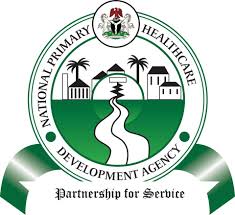By Iyemah David
The National Primary Health Care Development Agency (NPHCDA) has announced a concerted effort to enhance public health and ensure widespread vaccine access by collaborating with religious and traditional leaders.
The agency stated that the strategic partnership leveraged the influential roles of the leaders to promote vaccine acceptance and uptake across communities, particularly in areas where vaccine hesitancy remained a challenge.
Executive Director of the agency, Dr Muyi Aina, in an interview in an interview said the initiative aimed to shape community perspectives, foster open dialogue, and set health priorities, aligning with the broader goal of achieving Universal Health Coverage (UHC) by 2030.
He said that by engaging religious and traditional leaders, the agency hoped to harness their moral influence to address vaccine hesitancy and misinformation, thereby increasing vaccination rates.
“Religious and traditional leaders hold a unique position of trust and respect within their communities. Their endorsement and active participation in vaccination campaigns can significantly impact public perception and behaviour.
“Recognising this, the agency and its partners are educating these leaders on the importance of vaccines and equipping them with accurate information to share with their followers,” he said.
Dr Aina added that, “By creating platforms for discussion, the agency aims to address concerns, dispel myths, and provide clear, science-based answers to questions about vaccines.
“These dialogues are essential in building trust and ensuring that community members are heard and respected.
“These leaders can provide valuable insights into the unique challenges and needs of their communities, allowing for more tailored and effective health interventions.”
He said that the initiative was a significant step towards achieving the broader objective of Universal Health Coverage by 2030.
“Ensuring that every Nigerian has access to life-saving vaccines is crucial for protecting public health and preventing the spread of diseases.
“The combined efforts of the agency, its partners, and community leaders are expected to contribute significantly to this goal,” he said.
He said that the success of this initiative hinges on the active involvement of every individual within the community.
“By working together, communities can overcome barriers to vaccine access and create a healthier future for all.
The agency envisions that every person has a vital role to play in this endeavour, whether by getting vaccinated, encouraging others to do so, or participating in community health activities,” he said.
With the backing of these respected community figures, he said that the campaign was poised to create a more informed and health-conscious populace.
“The agency and its partners remain committed to supporting these leaders and their communities, ensuring that accurate information and vaccines are accessible to all.
“This collaborative approach not only aims to improve vaccination rates but also to build a foundation for sustained public health improvements.
“Ultimately leading to the realisation of universal health coverage within the next decade,” he said.




